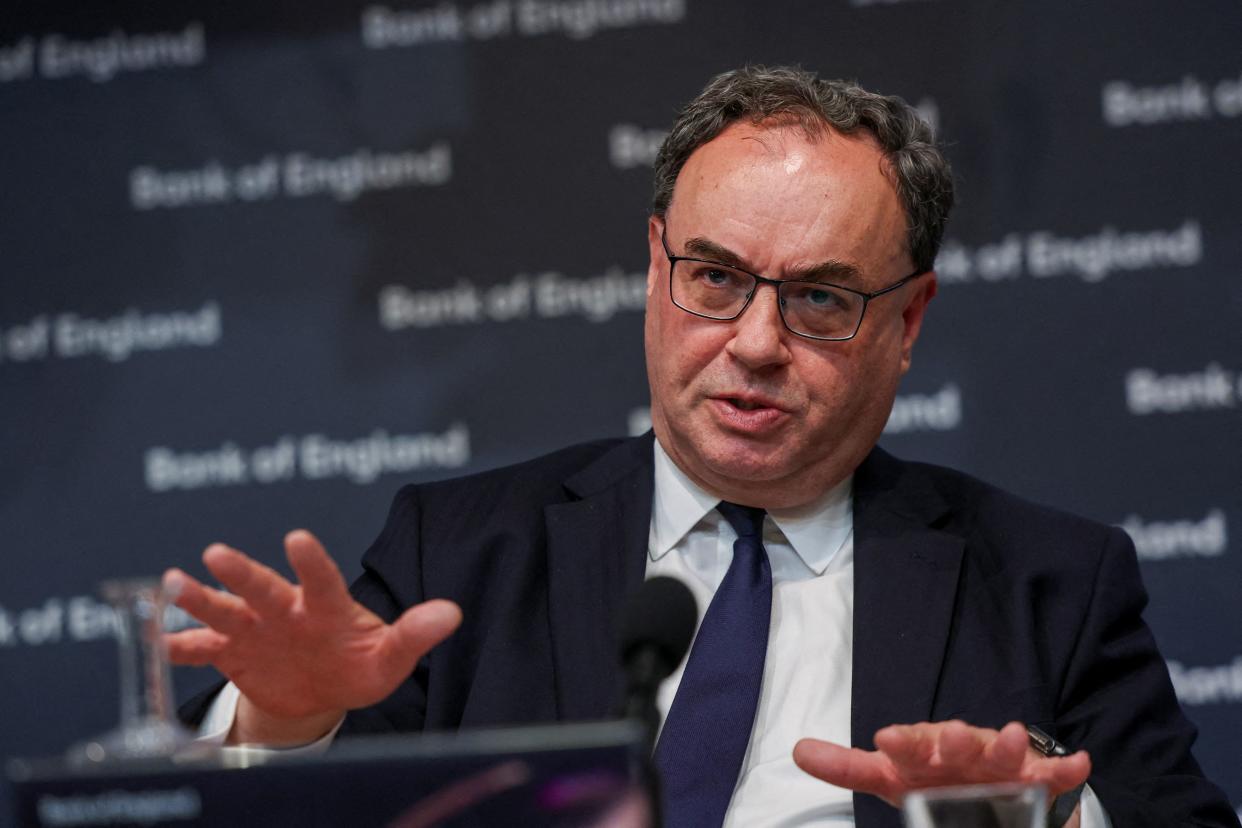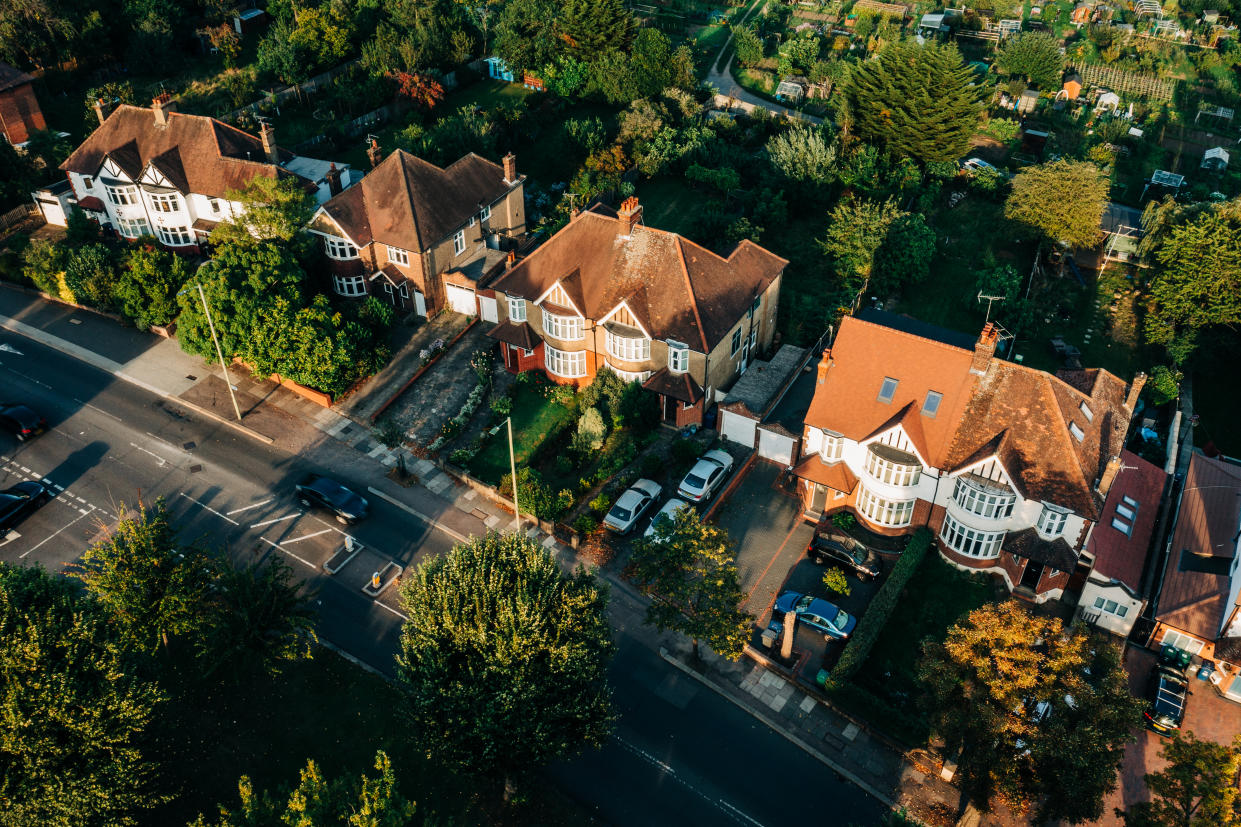Bank of England set to raise interest rates to highest level since the financial crisis

The Bank of England (BoE) is likely to raise interest rates by 0.25% to 5.25% when the monetary policy committee (MPC) meets on Thursday.
If the MPC goes ahead with the rate rise, which is widely expected by markets and forecast by analysts, this will be the 14th consecutive increase and record high since the 2007/08 financial crisis. It may also prompt another round of mortgage rate rises.
There is an outside chance the BoE may still go ahead with yet another 50bps rise. Central banks world over continue to grapple with rising inflation and last week both the Federal Reserve in the US and the European Central Bank opted for hikes.
The US Federal Reserve raised rates to 5.5%, highest since 2001, while the ECB lifted rates to 4.25%, both opting for 25bps rise.
The International Monetary Fund last week raised its outlook for global economic growth for this year but warned that higher inflation could still require more interest rate hikes and cut into that growth. It forecasts UK GDP to rise by 0.4%, up from its previous forecast of -0.3%, in 2023 and by 1% in 2024, indicating the economy will avoid recession.
But the gloom is not over as the BoE, stung by criticism of getting its inflation call wrong, is likely to continue with its strategy of curbing spending.
Read more: Ben Bernanke to lead Bank of England review
However, with the UK inflation rate dropping to a 15-month low of 7.9% and millions of households facing steep rises in mortgage costs the Bank is most likely to take a conventional approach of steady rises.
"It's a close call, but we now think the MPC will settle for a 25bps hike, lifting Bank Rate to 5.25%," analysts at Deutsche Bank said.
"We see two further quarter point rate hikes on the table, with Bank Rate peaking at 5.75%. Rate cuts, we think, will commence from Q2-24. But risks are skewed to a later and more shallow easing cycle."
In June, the MPC voted seven to two for a 50bps rise with notably both governor Andrew Bailey and chief economist Huw Pill voting in favour. Both have also consistently warned over the tough decisions needed to control rampant inflation.
"We are committed to returning inflation to the 2% target and will make the decisions necessary to achieve that," Bailey had said.
Central banks use interest rates as one of their primary tools to influence economic conditions. By raising interest rates, they aim to slow down economic activity and reduce inflationary pressures. Similarly, central banks may lower interest rates to stimulate borrowing, spending, and investment as they did during the COVID pandemic.
Watch: How does inflation affect interest rates?
“The Bank of England is expected to follow through with another rate rise at its forthcoming meeting, even though a sliver of space has opened up to allow them to pause the rate hiking cycle if they wanted to, with inflation falling back considerably in June," said Laith Khalaf, head of investment analysis at AJ Bell.
“CPI is still way above target, so the Bank is likely to keep its foot on the brake pedal, even though that leads to mounting pressure on the UK’s beleaguered mortgage holders." He said the market is now expecting interest rates to top out at 5.75% or 6% by the end of the year.
Current economic indicators, including a strengthening pound and falling wholesale prices of gas, have contributed to the forecasting of inflation falling to below 2% target over next three years, according to analysts. Thus indicating the Bank has already done most of the heavy lifting work with regards to rate rises.
Read more: Are government bonds a good buy when interest rates rise?
“The pay numbers, along with a possible desire to be seen doing something to bring inflation down, will be enough to sway the MPC into increasing rates again. But an August rise should mark the summit, or near-summit, of the current rate rise cycle,” said Martin Beck, chief economic adviser to the EY ITEM Club.
Meanwhile, the Trades Union Congress (TUC) has warned BoE's interest rate rises could trigger a recession. The TUC says "skyrocketing” interest rates have been a key driver behind the job losses – both pushing up costs for businesses and reducing the amount people have to spend in their local economies.
The TUC warned that a further increase in rates would “put tens of thousands more jobs at risk.”
“With the country teetering on the brink of recession, the last thing we need is another hike in interest rates," said Paul Nowak, TUC general secretary.
Impact on mortgage rates
There are about 2.2 million homeowners in the UK on variable rates, according to the latest data. Their mortgages go up as BoE raises interest rates.
The BoE's credit data published on Monday showed mortgage approvals rose to highest level in eight months in June, despite higher cost of borrowing via elevated mortgage rates.
The average two-year fixed-rate mortgage hit 6.86% last week, according to Moneyfacts. Analysts, however, are expecting banks to keep the cost of fixed-rate deals on the downward trajectory with leading banks including Barclays (BARC.L), TSB, HSBC (HSBA.L) and Nationwide (NBS.L) all cutting their rates.
Read more: Interest rates: When will UK’s mortgage misery end?
"For major moves much below 6%, we can expect to have to wait for inflation to fall on a sustained basis and the Bank of England to be weighing up rate cuts. If you’ve been sitting on a variable rate, waiting for a good time to fix, then with Bank of England rates set to rise twice more, this could be what you’ve been waiting for," said Sarah Coles, Yahoo Finance UK columnist and personal finance analyst at Hargreaves Lansdown.
"You will need to be comfortable with watching fixed rates fall further into next year, but you will have the certainty of a fix at a lower rate than we’ve seen for weeks."
Mortgage deals currently on offer

HSBC
Two-year fixed fee saver mortgage 60-75% LTV 6.44%
Two-year fixed standard mortgage 60-75% LTV 6.14%
Followed by variable rate of 6.99%
Barclays
Two-year fixed (purchase only) 60% LTV 5.93%
Two-year fixed (purchase only) 75% LTV 5.99%
Halifax
Two-year fixed up to 60% LTV 6.42%
Two-year fixed 60-75% LTV 6.68%
Based on a £350,000 house with a £90,000 deposit for a 25-year mortgage.
Lloyds
Two-year fixed 60-75% LTV 6.78%
Based on same terms as above.
Nationwide
Two-year fixed 6.39%
Based on same terms as above.
Natwest
Two-year fixed 6.44%
Followed by variable rate of 7.74%
Based on same terms as above.
Watch: Almost 1 million households face mortgage hike, warns Bank of England
Download the Yahoo Finance app, available for Apple and Android.


